"The Sea-Wolf", a Critique of Social Darwinism in Jack London’s Narrative || Review (ENG/SPA)
Hello! I wish you a wonderful day.
Today we come with a thirst for adventure, but not just any adventure. This one serves up a brutal clash between man, nature, and the philosophical stances of its characters toward life as the main course
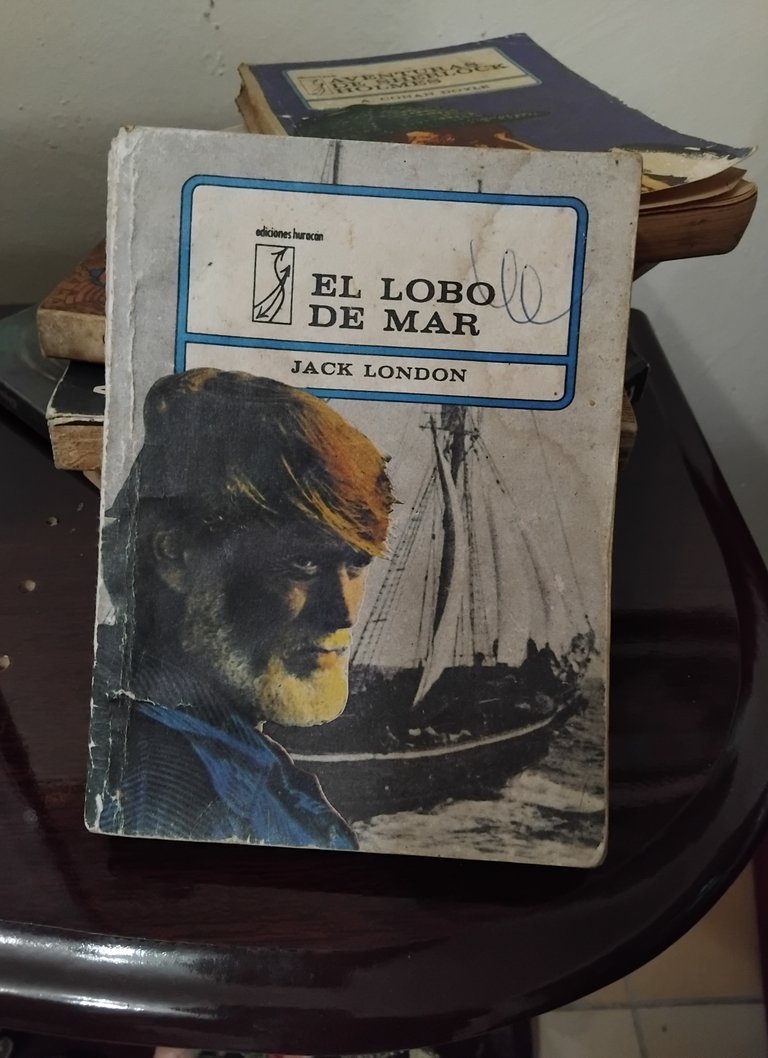
The Sea-Wolf (1904), one of Jack London’s most emblematic works, transcends its apparent guise as a maritime adventure novel to deliver a profound analysis of social Darwinism, an ideology that applied the principles of natural selection to human societies. Through the antagonist, Wolf Larsen, and his relationship with the civilized Humphrey van Weyden, London exposes the contradictions and horrors of a philosophy that justified the domination of the strongest.

Larsen embodies the figure of the Nietzschean "superman" adapted to the brutal laws of the sea. For those who have read the novel, despite the character’s malevolence, there’s an unsettling, almost morbid admiration that lingers in the reader’s subconscious. Self-taught, physically formidable, and intellectually sharp, Larsen captains the Ghost, ruling his crew through force and terror, arguing that morality is an invention of the weak. His worldview is materialistic and ruthless:
"Life is a ferment, a yeasty froth of scum and slime. We are born by accident, suffer by whim, and die by necessity."
This line encapsulates his Darwinian nihilism: humans have no transcendent purpose, and only those like him who impose themselves without scruple survive. Yet London dismantles this figure by showing his self-destruction. Despite his power, Larsen ends up blind and paralyzed, victimized by a brain tumor, a metaphor for the collapse of his own philosophy.

The contrast between Larsen and Van Weyden, an intellectual initially dependent on his social status, illustrates the debate between civilization and barbarism. While Larsen claims compassion is weakness, Van Weyden evolves into a resilient figure who refuses to abandon empathy. His transformation, learning to sail, fight, and protect Maud Brewster, proves that true strength lies not in cruelty but in adaptation without losing one’s humanity.
Influenced by Herbert Spencer and Karl Marx, London critiques social Darwinism by demonstrating the Larsen’s "superiority" is self-destructive where his isolation and paranoia doom him. He show through cooperation triumphs over individualism when Van Weyden and Maud survive by working together and that the ethics are not a burden but a survival tool: Compassion enables their escape where Larsen’s brute force fails.
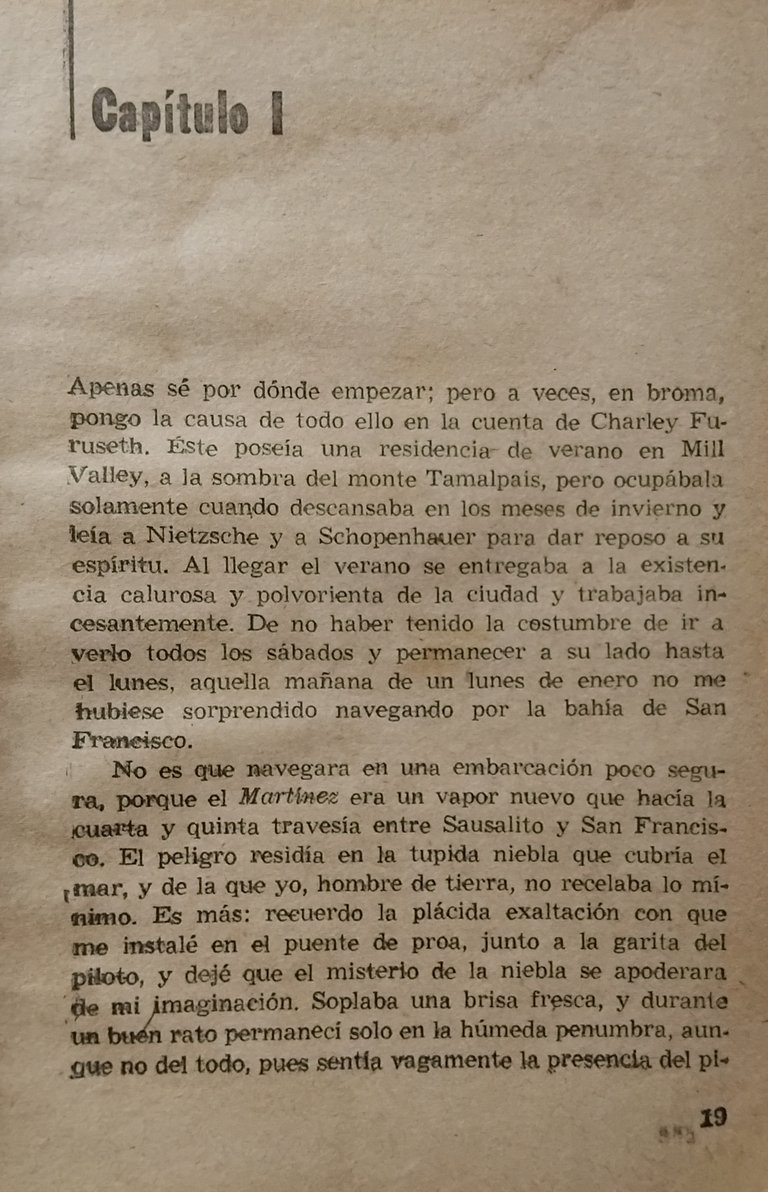
The harshly realistic maritime setting acts as a Darwinian leveler: storms, hunger, and cold spare no one, strong or weak. Larsen, who believes himself master of the sea, is humbled by a mere headache. London underscores that nature rewards not cruelty but intelligent adaptation, something Van Weyden achieves by balancing reason and instinct.
Though London admired physical strength (evident in works like White Fang), The Sea-Wolf deconstructs social Darwinism by revealing its flaws that Larsen, for all his genius, dies alone and defeated.
However Weyden, the "weakling," survives without becoming a monster. Maud Brewster’s presence (an independent woman in a hyper-masculine world) challenges the notion that domination is natural.
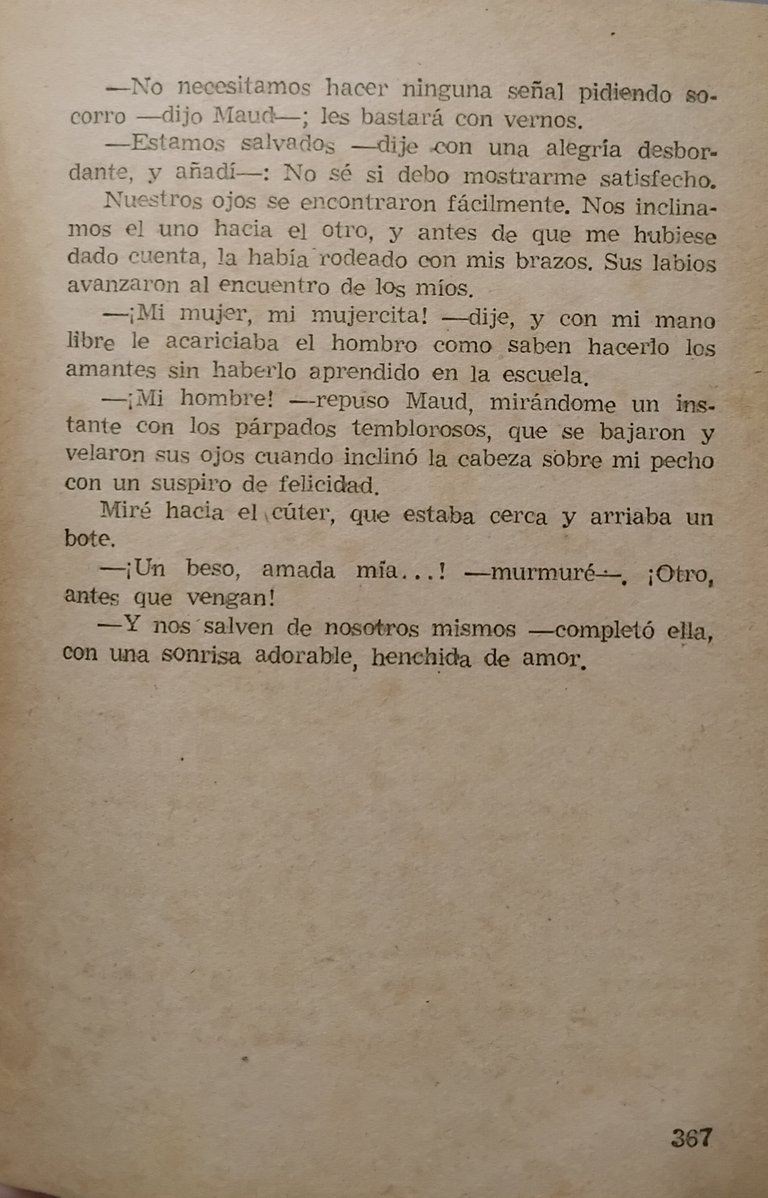
Written during the era of robber barons (ruthless industrialists), the novel serves as an allegory for capitalist excess. London, a socialist, rejects exploitation as a natural law, suggesting true strength lies in resisting without forfeiting humanity.
The Sea-Wolf remains a timely warning against ideologies glorifying violence as progress. In a world where rhetoric still justifies inequality in the name of "survival of the fittest," London’s voice rings urgently.
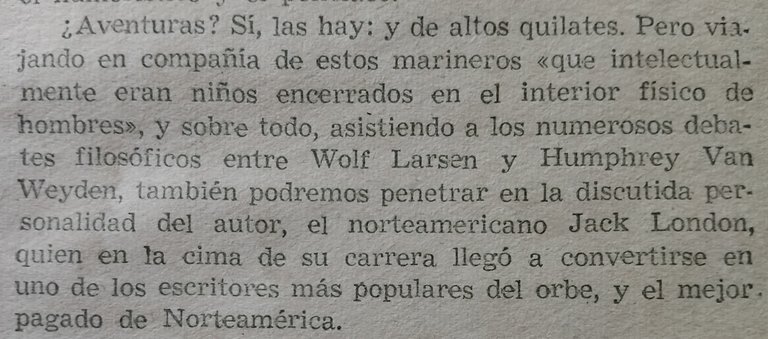
A must-read: A masterpiece blending adventure and philosophy, essential for understanding modernity’s ethical tensions.
Until the next time.

"This post was written without the use of AI. The images are mine. The banners were made on Canva, courtesy of @yuraimatc."

¡Hola! Les deseo un maravilloso día.
Hoy venimos con deseos de aventuras, pero no de cualquiera, sino de una que pondrá como plato fuerte una lucha cruenta entre el hombre, la naturaleza y la postura filosófica de sus personajes ante la vida.
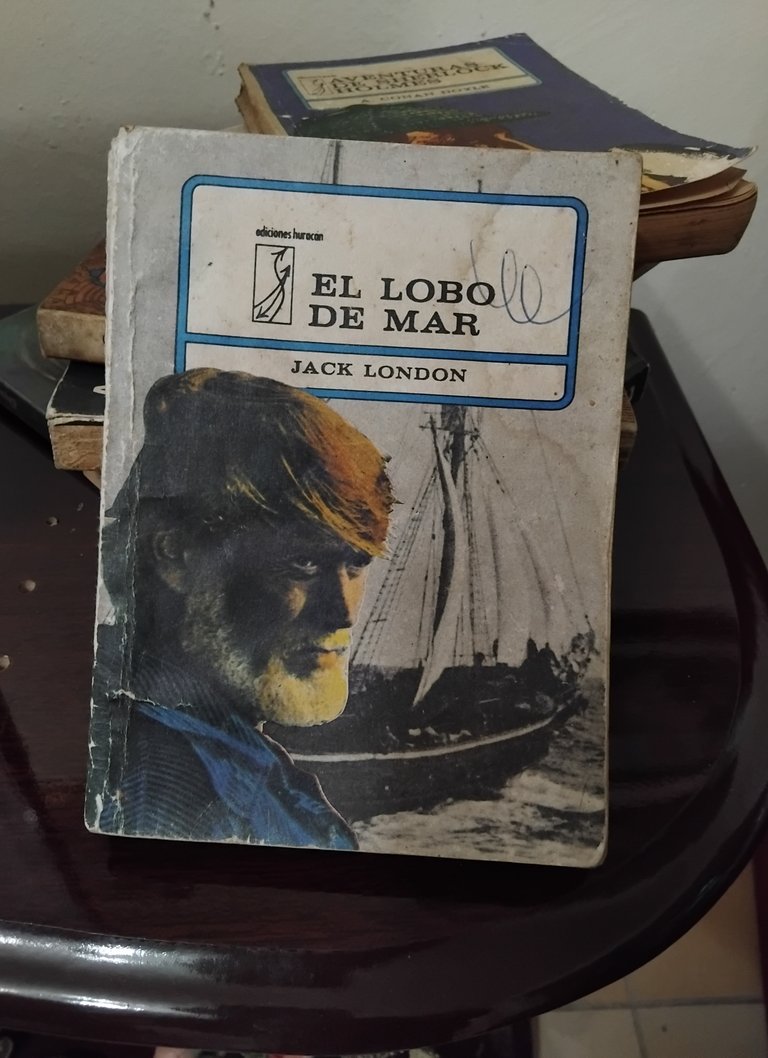
El lobo de mar publicada en 1904, una de las obras más emblemáticas de Jack London, trasciende su aparente condición de novela de aventuras marítimas para convertirse en un profundo análisis del darwinismo social, una ideología que aplicaba los principios de la selección natural a las sociedades humanas. A través del antagonista, Wolf Larsen, y su relación con el civilizado Humphrey van Weyden, London expone las contradicciones y horrores de una filosofía que justificaba la dominación del más fuerte.

Wolf Larsen encarna la figura del "superhombre" nietzscheano adaptado a las leyes brutales del mar. No se si les pasó a quienes han leído la novela, pero a pesar de la negatividad del personaje el lector crea en el subconsciente una especie de admiración morbosa por él. Hombre autodidacta, físicamente poderoso e intelectualmente agudo, es el capitán del Ghost y gobierna a su tripulación mediante la fuerza y el miedo, argumentando que la moral es una invención de los débiles. Su visión del mundo es materialista y despiadada.
"La vida es un fermento, un estiércol de lodo y gusanos. Nacemos por accidente, sufrimos por capricho y morimos por necesidad".
Esta frase resume su nihilismo darwinista, el ser humano no tiene un propósito trascendente, y solo sobreviven quienes, como él, se imponen sin escrúpulos. London, sin embargo, desmitifica esta figura al mostrar su autodestrucción. Larsen, pese a su poder, termina ciego y paralítico, víctima de un tumor cerebral, que se puede interpretar como una metáfora del colapso de su propia filosofía.

El contraste entre Larsen y Van Weyden, un intelectual que al inicio de la novela depende de su posición social, ilustra el debate entre civilización y barbarie. Mientras Larsen defiende que la compasión es una debilidad, Van Weyden evoluciona hacia una fortaleza que no renuncia a la empatía. Su transformación demostrada a través de la necesidad de supervivencia que lo hace aprender a navegar, luchar y proteger a Maud Brewster, demuestra que la verdadera fuerza no radica en la crueldad, sino en la adaptación sin perder la humanidad.
London, influido por las teorías de Herbert Spencer y Karl Marx, critica el darwinismo social al mostrar que, la "superioridad" de Larsen es autodestructiva pues su aislamiento y paranoia lo condenan.
Así mismo la cooperación triunfa sobre el individualismo Van Weyden y Maud sobreviven trabajando juntos. También a través de la conductade los personajes evidencia que la ética no es un lastre, sino una herramienta de supervivencia. La compasión les permite escapar donde la fuerza bruta de Larsen fracasa.
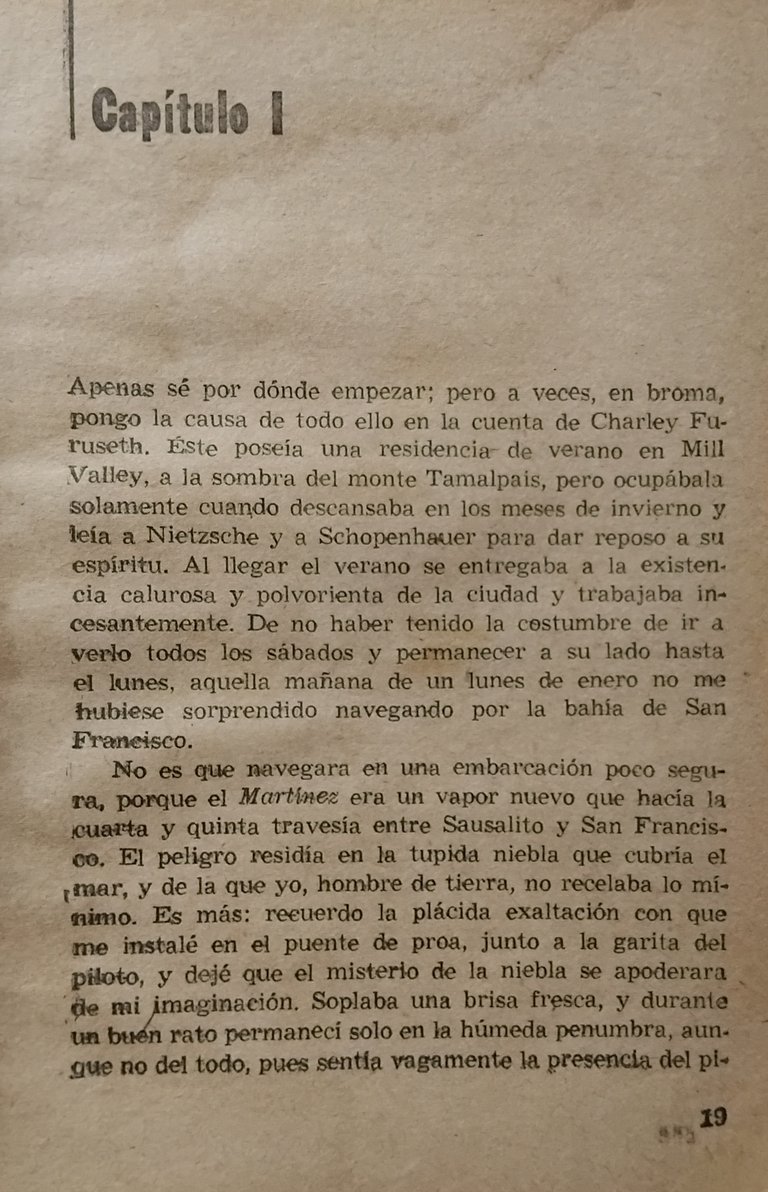
El entorno marino, descrito con crudeza realista, actúa como un nivelador darwiniano donde las tormentas, el hambre y el frío no distinguen entre fuertes y débiles. Larsen, que se cree dueño del mar, es humillado por un simple dolor de cabeza. London subraya así que la naturaleza no premia la crueldad, sino la adaptación inteligente, algo que Van Weyden logra al equilibrar razón e instinto.
Aunque London admiraba la fuerza física, evidente en sus otras obras como Colmillo Blanco, en El lobo de mar desmonta el darwinismo social al revelar sus contradicciones cuando Larsen, pese a su genialidad, muere solo y derrotado. Sin embargo Van Weyden, el "débil", sobrevive sin convertirse en un monstruo. En cuanto a la presencia de Maud Brewster (una mujer independiente en un mundo masculinizado) cuestiona la idea de que la dominación sea natural.
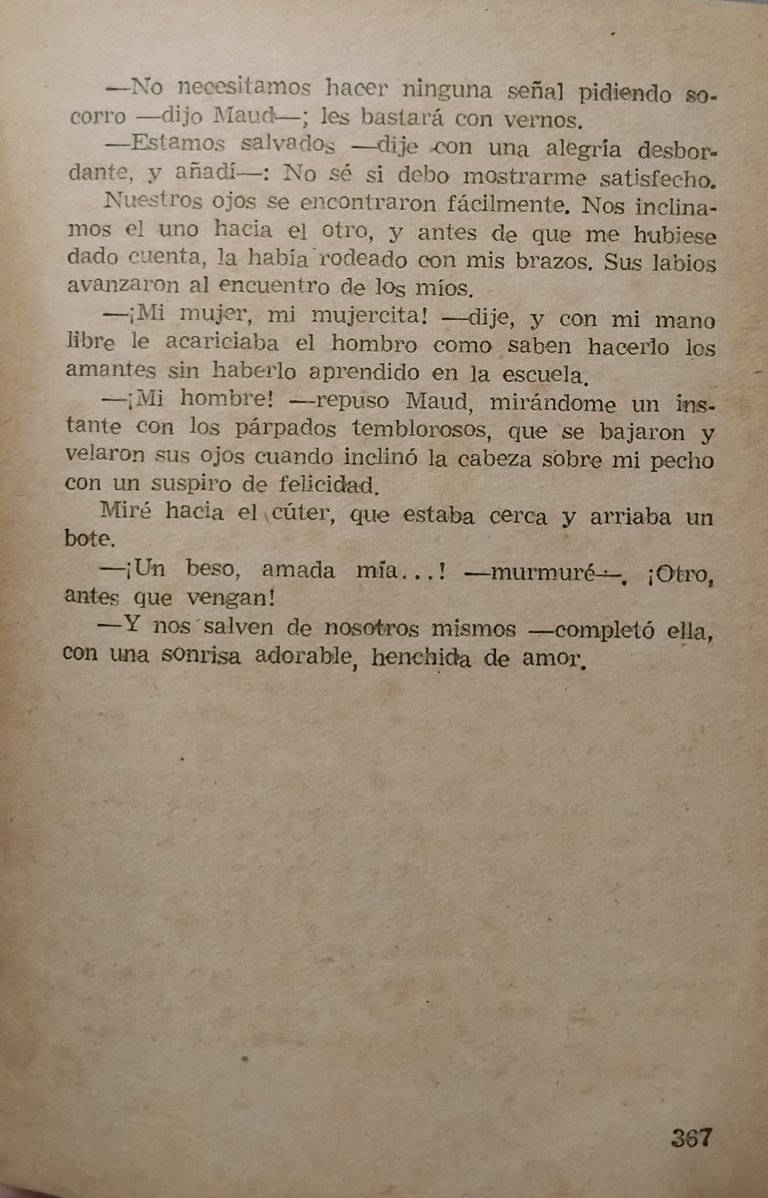
La novela, escrita en la era de los robber barons (magnates despiadados), sirve como alegoría de los excesos del capitalismo industrial. London, socialista, rechaza que la explotación sea una ley natural, la verdadera fuerza, sugiere, está en resistir sin perder la humanidad.
El lobo de mar sigue vigente como una advertencia contra las ideologías que glorifican la violencia como motor del progreso. En un mundo donde aún persisten discursos que justifican la desigualdad en nombre de la "supervivencia del más apto", la voz de London resuena con urgencia.
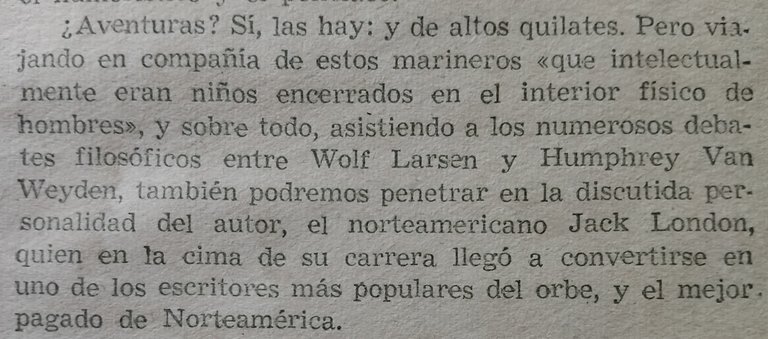
Les sugiero la lectura, pues nos encontramos ante una obra maestra que combina aventura y filosofía, indispensable para entender las tensiones éticas de la modernidad.
Hasta pronto.

Este post fue redactado sin el uso de IA. Las imágenes me pertenecen. Los banners fueron creados en Canva, cortesía de @yuraimatc
Congratulations @camelia28! You have completed the following achievement on the Hive blockchain And have been rewarded with New badge(s)
Your next target is to reach 30 posts.
Your next target is to reach 50 comments.
Your next target is to reach 2250 upvotes.
Your next payout target is 250 HP.
The unit is Hive Power equivalent because post and comment rewards can be split into HP and HBD
You can view your badges on your board and compare yourself to others in the Ranking
If you no longer want to receive notifications, reply to this comment with the word
STOPCheck out our last posts:
Es un autor que debo leer, buena reseña.